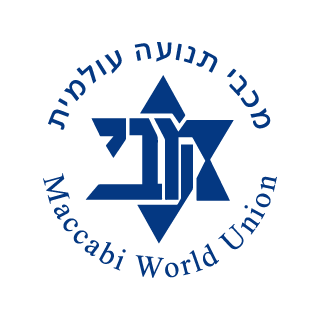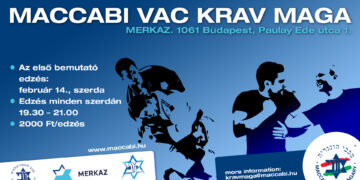Purim and the Maccabi way
Dear Friends,
A Hasidic story elaborates about one of the core obligations of the Festival of Purim: the reading of Megillat Esther, the book of the Bible that describes the salvation of the Jewish people from the hands of Haman the Evil in the Persian Empire (V b.c.e.):
The sons of the Belzer Rebbe were away from home on Purim. One of them, Rabbi Eleazar, remarked: “How I miss the reading of Megillat Esther by our father!”
The other son, Rabbi Joshua said: “Today we have performed the mitzvah [of the reading of the Megillah] in perfection. While at home, we hear the Megillah not only because it is a mitzvah, but also because we take pleasure in our father’s reading of it. Mitzvot and pleasure may not be combined if the true spirit of performing a Mitzvah is to be maintained”
The message of this story is simple and clear: for Rabbi Joshua, the mitzvah is truly observed when what motivates it, is the duty as such – to perform the mitzvah because we have to, for no other reason than being ordained by God. As with Kantian ethics, the moral value of an action lies in the motive which determines its performance. Only when this motive is the duty per se there is genuine moral worth. Continuing with his opinion, to fulfill the mitzvah to listen to Megillat Esther, in its highest expression, will be achieved “for the duty’s sake” and not for the pleasure we can experience with the festive occasion, the joy of the meeting in the synagogue and the colorful costumes.
The interpretation of Rabbi Joshua (who succeeded his father in the Belz Hasidic dynasty) is very distant from the thought of some other Jewish scholars of all ages, and definitely from our Maccabi ethos.
We live in a world where our Jewish commitment is challenged constantly by a ferocious left-wing anti-Semitism in the West (disguised as anti-Zionism), and by “traditional anti-Semitism” of the right-wing followers in the countries of the former USSR, and, recently, also and with a reborn savagery again throughout the West. Our old Yiddish expression, “Shver tzu zayn a Yid” (“how hard it is to be a Jew”), has again renewed its strength in the ongoing harassment against Israel and the Jewish people in academic, diplomatic, media frameworks… and also in attacks on the streets of Paris, London, Berlin, Los Angeles or Santiago de Chile.
Judaism, more than ever, must show its most appealing, positive, constructive, pleasant and dynamic face, to provide an effective answer to Jews who hide their origins in various locations in the world, or to others who feel Judaism is irrelevant to them. We should return to our Judaism and our connection to the State of Israel based on the joy of Jewish-Zionist best practices, the meeting of our people, and the celebration of our festivities and achievements – in Purim, booing Haman and praising Mordechai during the reading of the Megillah. We must generate practices based on joy and rejoice; practices held in the up-building of our Jewish values that made our People what we are today.
This is what we accomplish in Maccabi with our tournaments and seminars, with our conferences and events, with our workshops and our Maccabi Tzair youth movement – we have just held a North American Seminar with 220 madrichim!; with our Shabbatonim and our programs in Israel; with our Maccabi Regional Games and with the Maccabiah. Positive action, which seeks (and succeeds!), through the deepest joy, building a Jewish identity strong enough to resist the advances of those who still conceive the Jewish people as “the eternal enemy” – renewing the most ancient social disease in History: antisemitism.
Through our Jewish-Zionist committed work and actions, with their messages of happiness and rejoice, we will achieve the strengthening of the Jewish identity of the members of our people, who find in our “Maccabi way” their most significant path to continue and deepen their ties to the Jewish people, our heritage and our State.
May God inspire us in this Purim to feel closer
to the Land and the State of Israel –
central to our creativity, to our collective identity,
to our life as a People.
May God grant us Purim’s message of life, hope and salvation to encourage us to celebrate together, evoking the feelings and emotion which led us to our present glory.
And may God will that each and every one of us hears the story of Esther, Mordechai and their redemptive history, and adopt it as our own.
With best wishes,
Chag Purim Sameach!
Chazak ve’ematz!
Rabbi Carlos A. Tapiero
Deputy CEO & Director of Education
Maccabi World Union















